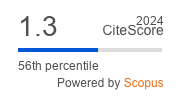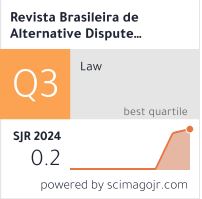The role of artificial intelligence in ensuring the efficiency and accessibility of justice
Schlagworte:
artificial intelligence, electronic justice, computer technologies, judiciary, international practice, national legislationAbstract
Information technologies are changing our world extremely fast. The availability of information technologies opens new opportunities but presents challenges. The above contributes to the relevance of applying artificial intelligence (AI) in the justice system. E-justice should facilitate digital market development, which is an essential e-government task. The legal industry has always been known for relying on tradition and resisting change. However, recent advances in AI technology are nimble to disrupt the legal landscape, changing how law firms and legal departments work. The article aims to clarify how to use AI to improve the efficiency and speed of judicial processes and analyze examples of successful implementation of AI systems in the legal field. The article determines the advantages and disadvantages of AI used in justice and examines the issue of accessibility and justice in the context of AI in justice. This research is relevant since it offers an in-depth understanding and analysis of new technologies in the context of legal challenges. It is possible to resort to this research when developing effective strategies for implementing artificial intelligence in the legal field, which constitutes its practical implication.
Literaturhinweise
Smokov, S. M., Horoshko, V. V., Korniienko, M. V., Medvedenko, S.V. ‘Rule of Law as a Principle of Criminal Procedure (on materials of the European Court of Human Rights)’ (2022) 14(3) Pakistan Journal of Criminology. p. 37-46.
Sourdin, T., Li, B., McNamara, D. M. ‘Court innovations and access to justice in times of crisis’ (2020) 9(4) Health Policy and Technology. p. 447-453.
Tsuvina, T. A. ‘Online courts and online dispute resolution in the context of the international standard of access to justice: international experience’ (2020) (149) Problems of Legality. p. 62-79.
Turing, A.M. ‘Computing Machinery and Intelligence’ (1950) 59(236) Mind. p.433-460.
Udovenko, Zh., Rudenko, N. ‘Advantages and disadvantages of the implementation of the artificial intelligence system in the justice system of Ukraine’ (2023) 4(10) Current Issues in Modern Science. p. 252-262.
Varava, I. ‘Innovations in the professional activity of lawyers: using the capabilities of artificial intelligence’ (2020) 1(32) Information and Law. p. 47-54.
Verkhovna Rada of Ukraine. ‘Criminal codex of Ukraine’ https://zakon.rada.gov.ua/laws/show/2341-14#Text (last visited on November 26, 2023).
Vinuesa, R., Azizpour, H., Leite, I., Balaam, M., Dignum, V., Domisch, S., Felländer, A., Langhans, S. D., Tegmark, M., Fuso Nerini, F. ‘The role of artificial intelligence in achieving the Sustainable Development Goals’ (2020) 11(1) Nature Communications. p. 1-10.
Zuryan, V. ‘Urgent problems and prospects for the development of electronic justice in Ukraine’ (2020) (4) Bulletin of the Penitentiary Association of Ukraine. p. 173-181.
Downloads
Veröffentlicht
Ausgabe
Rubrik
Lizenz
Copyright (c) 2024 Revista Brasileira de Alternative Dispute Resolution - Brazilian Journal of Alternative Dispute Resolution - RBADR

Dieses Werk steht unter der Lizenz Creative Commons Namensnennung 4.0 International.
No royalties or other compensation shall be due for the publication of the works.
The opinions expressed by the authors of the articles and reviews are their sole responsibility.









